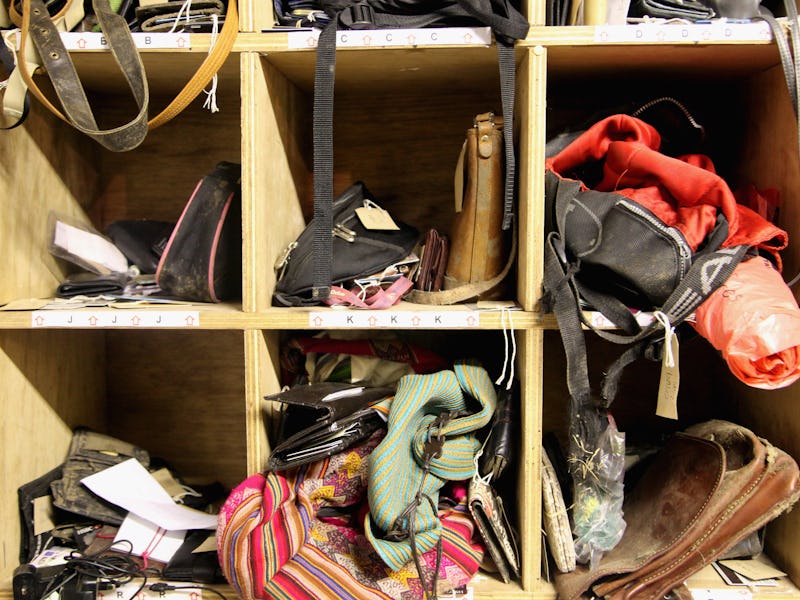
Apple received a patent on Tuesday for a system that would use a crowdsourced network of tiny devices attached to car keys, backpacks, and other easily lost items to help their owners keep track of them. The resulting network might also make it harder for people to steal — assuming Apple is able to convince people to use these devices.
Apple’s system would rely on small Bluetooth low energy (BLE) “tags” attached to objects. If an item is lost, but is close to its owner, the tags would emit a BLE signal that could be picked up by a smartphone. If the lost item is further away, though, its owner would be able to request access to a distributed lost-and-found network that would allow the device to communicate with nearby smartphones to learn its location.
A drawing shows how the system would work.
The result is a network anyone would be able to use to find their lost items. The problem is that this would require a large number of users to work; a small network would be limited in its ability to pick up signals from the BLE tags, which have a shorter range than other wireless communications tools. Apple would also have to figure out how to enable this network, while working around battery power constraints.
That’s where the patent comes in. Apple says it would use microchips to monitor signals, which would result in “significantly lower” power consumption than if it used an application processor. It would also activate the system “only infrequently and briefly” — this would ensure that the devices don’t have to constantly broadcast their location. Apple’s hope is that this will keep the network’s battery drain low.
Having a minimal impact on battery life would be important to a service like this. Nobody’s going to use a lost-and-found system that makes their iPhone’s battery die faster. “Less battery drain puts less burden on the device and on the user using the device to participate in a crowd-sourced lost-and-found service,” Apple explained. “As a result, more people may be willing to participate, resulting in a better service.”
It’s worth noting that tech companies like Apple often patent new technologies, like one that could prevent concert photography, or another devoted to a paper bag, so this network might never be included in a consumer product.
But others could follow Apple’s lead by using Bluetooth and similar technologies to create a hyperconnected world. It would be hard to lose (or steal) anything if these tags are placed on everything from backpacks to television sets, and many people use the network.